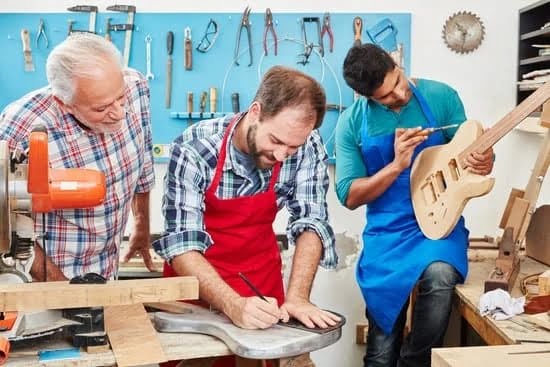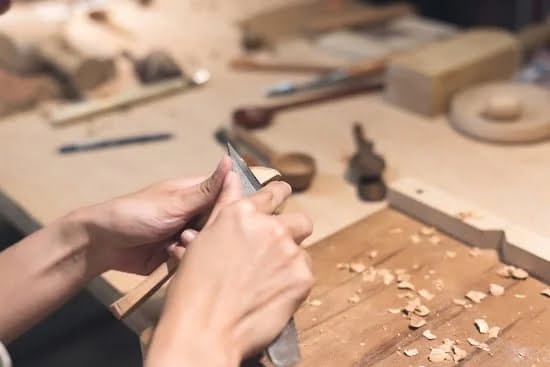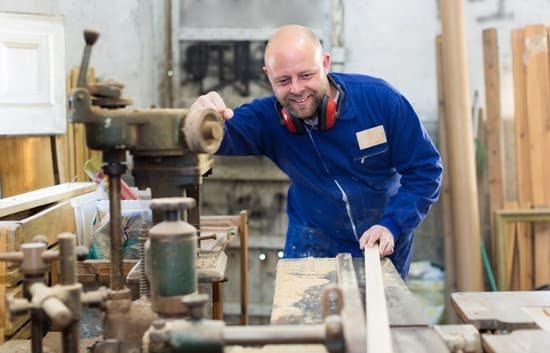Are you passionate about woodworking and eager to take on new projects? Whether you’re a seasoned pro or just starting out, having the right tools is essential for success. In this article, we will explore the must-have tools for woodworking projects, covering everything from hand tools to power tools, safety equipment, measuring tools, specialty tools, and even tips for maintaining and organizing your toolkit.
Woodworking is a craft that requires precision and attention to detail, making it crucial to have the right set of tools at your disposal. From saws and drills to chisels and clamps, having the proper tools can make all the difference in the quality and efficiency of your work. Whether you’re crafting furniture, building shelves, or tackling DIY projects around the house, having a well-equipped workshop is essential.
In this comprehensive guide, we will delve into the essential hand tools every woodworker should have, explore the importance of accurate measurements with measuring and marking tools, discuss the significance of safety equipment in woodworking, and even touch on specialty tools that can elevate your projects to new heights. So whether you’re a beginner looking to build your toolkit or a seasoned woodworker looking for new insights, read on to discover the must-have tools for woodworking projects.
Essential Hand Tools
The right tools are crucial for any woodworking project, and hand tools are essential for precision and fine detail work. Every woodworker should have a set of essential hand tools in their workshop to ensure they can tackle any project with confidence. From measuring and marking to cutting and shaping, having the right hand tools can make all the difference in the quality of your work.
One of the must-have tools woodworking projects is a chisel set. Chisels are versatile hand tools that are used for carving, shaping, and detailing wood. A good chisel set will include a variety of sizes to accommodate different projects and allow for intricate work.
Another essential hand tool is a quality set of hand saws. Whether it’s a crosscut saw for making straight cuts or a dovetail saw for more delicate joinery work, having the right saws can greatly improve the accuracy and efficiency of your woodworking projects.
In addition to chisels and hand saws, every woodworker should also have a quality set of planes, including block planes and bench planes. These tools are essential for smoothing rough surfaces, truing edges, and shaping wood. Investing in high-quality hand tools may require some initial financial investment but will ultimately save time and frustration while producing higher quality results.
| Must-Have Hand Tools | Description |
|---|---|
| Chisel Set | Versatile hand tool used for carving, shaping, and detailing wood. |
| Hand Saws | Includes various types such as crosscut saws and dovetail saws for different cutting needs. |
| Planes | Essential for smoothing rough surfaces, truing edges, and shaping wood. |
Power Tools
When it comes to woodworking projects, having the right power tools is essential for getting the job done efficiently and with precision. While hand tools certainly have their place in the workshop, power tools can significantly speed up the woodworking process and tackle larger, more complex projects. Here are some must-have power tools for any woodworker’s toolkit.
One of the most essential power tools for woodworking projects is a cordless drill. This versatile tool can be used for drilling pilot holes, driving screws, and even stirring paint. Look for a drill with multiple speed settings and a comfortable grip to make your woodworking tasks easier and more efficient.
A table saw is another indispensable tool for any woodworker. This powerful tool allows you to make precise cuts quickly and accurately, making it ideal for ripping large boards or cutting sheets of plywood. When choosing a table saw, opt for one with adjustable blade height and angle settings for maximum versatility in your woodworking projects.
In addition to a table saw, a quality circular saw is also a must-have for any woodworker. This handheld power tool is perfect for making straight cuts or crosscuts on smaller pieces of lumber or plywood. Look for a circular saw with a comfortable grip and easy-to-adjust depth and bevel settings to ensure smooth and accurate cuts every time.
Investing in these essential power tools for woodworking projects will not only save you time and effort but also open up new possibilities for taking on more ambitious projects in your workshop. By having these tools on hand, you can tackle a wide range of woodworking tasks with confidence and precision.
Measuring and Marking Tools
When it comes to woodworking projects, one of the most crucial aspects is getting accurate measurements and markings. Whether you are building furniture, crafting a new set of cabinets, or simply working on a DIY project, precision is key. In order to achieve this level of accuracy, there are several essential measuring and marking tools that every woodworker must have in their toolkit.
Measuring Tools
One of the most fundamental tools that every woodworker should have is a quality tape measure. This simple yet versatile tool allows for quick and precise measurements, making it indispensable for any project. Additionally, a combination square is vital for creating perfectly square cuts and layouts. Its ability to double as a depth gauge and height gauge adds to its versatility.
Marking Tools
Marking tools play an equally important role in woodworking projects. A sharp utility knife or marking knife is essential for scoring precise lines on wood without tearing or splintering the surface. A marking gauge is also necessary for creating consistent parallel lines across your workpiece.
Importance of Accurate Measurements
Accurate measurements and markings not only ensure the overall quality and aesthetics of your project but also contribute to its structural integrity. Properly measured and marked pieces fit together seamlessly, reducing the need for excessive sanding or adjustments later on in the process. By investing in high-quality measuring and marking tools, woodworkers can streamline their workflow and achieve professional results with every project.
Safety Equipment
Woodworking can be a rewarding and fulfilling hobby or profession, but it also comes with its share of risks. That’s why it is crucial to prioritize safety in every woodworking project. Whether you are a beginner or an experienced woodworker, having the right safety equipment is non-negotiable. Here are some essential safety tools that every woodworker must have in their workshop:
Eye Protection
One of the most important safety measures in woodworking is protecting your eyes from flying debris, dust, and potential splinters. Safety glasses or goggles should always be worn when working with power tools or hand tools to prevent eye injuries.
Hearing Protection
Woodworking can produce loud noises, especially when using power tools such as saws, routers, and planers. Prolonged exposure to these loud noises can damage your hearing over time, so it is important to wear earplugs or earmuffs to protect your ears.
Respiratory Protection
Woodworking involves the generation of fine dust particles that can be harmful if inhaled. A respirator or dust mask is essential for filtering out these particles and protecting your lungs from respiratory issues.
In addition to these specific safety equipment items, it’s also important to have a first aid kit readily available in your workshop in case of any accidents or injuries. Prioritizing safety not only protects you from potential harm but also allows you to fully enjoy the process of woodworking without worrying about unnecessary risks.
Specialty Tools
When it comes to woodworking, having the right tools is crucial for achieving professional results. While essential hand and power tools are necessary for basic woodworking projects, there are also specialty tools that can elevate your craftsmanship to the next level. These niche tools are designed for specific tasks and can make certain woodworking processes more efficient and precise.
One must-have specialty tool for woodworking projects is a dovetail jig. This tool is essential for creating strong and visually appealing dovetail joints, commonly used in furniture making and cabinetry. By guiding your router or saw, a dovetail jig ensures that each joint is perfectly spaced and angled, resulting in a seamless finish.
Another indispensable specialty tool is a biscuit joiner, also known as a plate joiner. This tool allows woodworkers to create strong joints by cutting semi-circular slots into two pieces of wood and then connecting them with football-shaped “biscuits” made of compressed wood. The biscuit joiner is especially useful for joining large panels or boards together, adding strength and stability to the final piece.
Additionally, investing in a quality edge banding machine is beneficial for achieving professional-looking edges on plywood or particleboard. This specialized tool applies heat-activated adhesive tape to the edges of these materials, providing a seamless and durable finish that mimics solid wood. With an edge banding machine, woodworkers can achieve a polished look without the need for time-consuming hand-finishing techniques.
| Specialty Woodworking Tool | Description |
|---|---|
| Dovetail Jig | A guide for routers or saws to create perfectly spaced and angled dovetail joints |
| Biscuit Joiner | Cuts slots into wood pieces to connect them with “biscuits,” adding strength and stability |
| Edge Banding Machine | Applies heat-activated adhesive tape to plywood or particleboard edges for a polished finish |
Tool Storage and Organization
Creating a Dedicated Workspace
One of the first steps in organizing and storing your woodworking tools for maximum efficiency is to create a dedicated workspace. This can be a garage, basement, or even a shed, but having a specific area where you can store and use your tools will make it easier to keep everything organized. Invest in sturdy workbenches or tool cabinets to keep your tools easily accessible and organized.
Investing in Tool Storage
When it comes to organizing your woodworking tools, investing in the right storage solutions is crucial. Wall-mounted pegboards are great for hanging hand tools like saws, hammers, and screwdrivers, while drawer units or tool chests are perfect for storing power tools and other larger equipment. Utilize shelving and racks to keep items like clamps, sandpaper, and hardware neatly organized and easily accessible.
Labeling and Maintenance
To ensure maximum efficiency when it comes to finding and using your woodworking tools, consider labeling all of your storage spaces. This will help you quickly locate the specific tool or piece of equipment you need for a project. Additionally, regular maintenance of your tool storage area is essential for keeping everything organized.
Take the time to clean up after each project and put everything back in its proper place. This will save you time and frustration when starting on your next woodworking endeavor.
Maintaining and Sharpening Tools
In conclusion, having the right tools for woodworking projects is essential for ensuring the success and quality of your work. From essential hand tools to power tools, measuring and marking tools, safety equipment, specialty tools, and even storage and organization solutions, a woodworker’s toolkit must be well-equipped. However, it’s not just about having the right tools – it’s also important to properly maintain and care for them to ensure their longevity and performance.
Maintaining and sharpening your woodworking tools is crucial for keeping them in top condition. Regular maintenance such as cleaning, oiling, and sharpening can not only prolong the lifespan of your tools but also ensure that they perform at their best. Dull or poorly maintained tools can not only affect the quality of your work but also pose safety risks.
Whether it’s a chisel, hand plane, saw, or power tool, each tool requires specific care and maintenance. Keeping your tools sharp and well-maintained will not only save you time and frustration in the workshop but will also ultimately save you money by avoiding having to replace worn-out tools prematurely. By investing time in maintaining and sharpening your must-have woodworking tools regularly, you can guarantee that they will continue to serve you well for years to come.
Frequently Asked Questions
What Is the Most Used Tool in a Wood Shop?
The most used tool in a wood shop is probably the table saw. It’s incredibly versatile and can be used for making rip cuts, crosscuts, miter cuts, and more. Its power and precision make it indispensable.
Which Tool or Combination of Tools Would Be Most Useful for General Woodwork?
For general woodworking, a combination of tools would be most useful. A combination of a table saw, a miter saw, a router, and various hand tools like chisels, planes, and clamps would provide the versatility needed for various projects.
What Do You Need to Start Woodworking?
To start woodworking, you’ll need some essential tools like a saw (either a circular saw or a handsaw), a hammer, measuring tape, square ruler, sandpaper, and woodworking glue. Having access to larger tools like a table saw or miter saw will also be beneficial for more advanced projects.

Hi everyone! I’m a woodworker and blogger, and this is my woodworking blog. In my blog, I share tips and tricks for woodworkers of all skill levels, as well as project ideas that you can try yourself.





